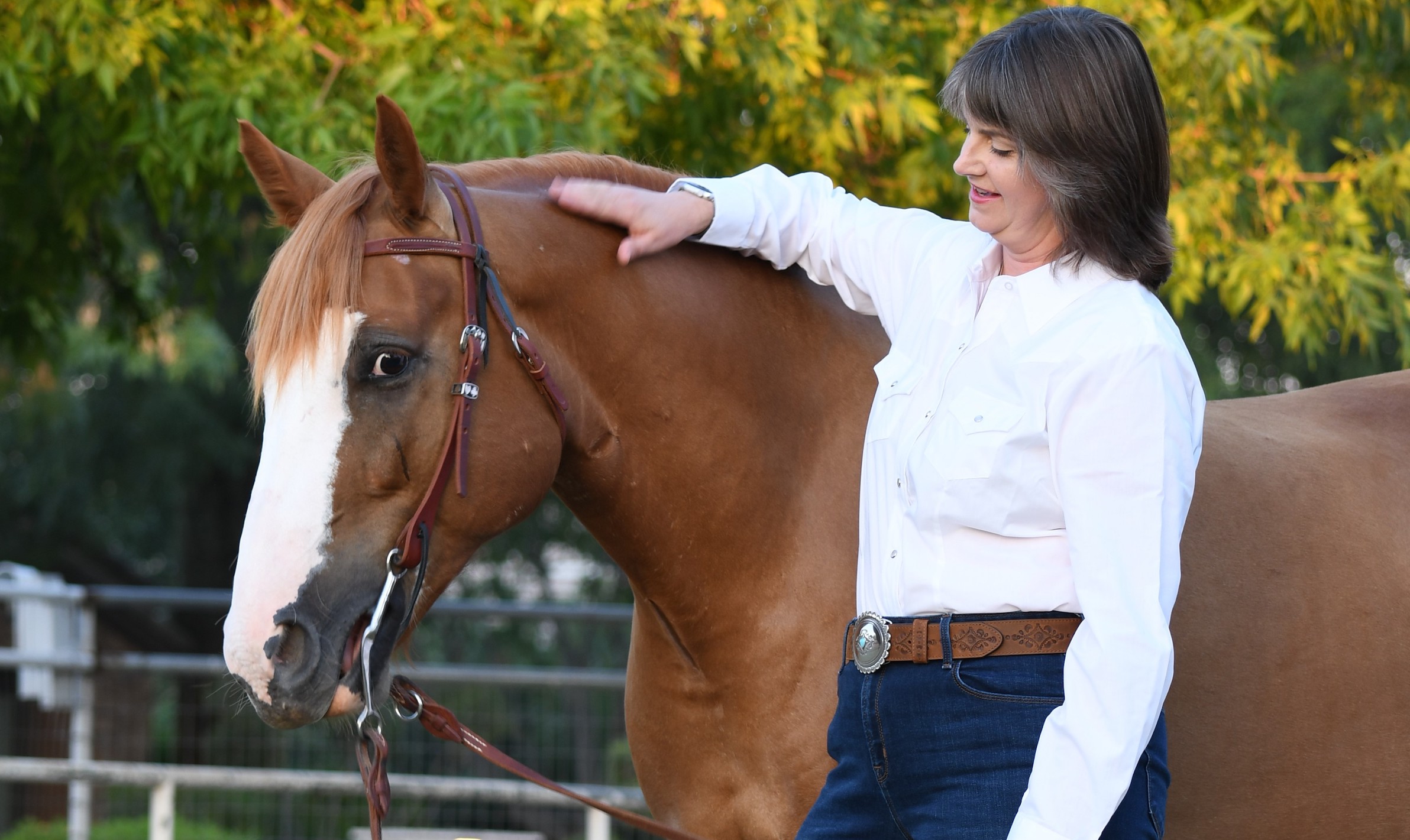Is your horse sometimes a hot mess? Do you wonder what could be the cause of his nervous or agitated behavior?
For insights, I chatted with Clair Thunes, PhD, an equine nutritionist who’s also an accomplished horsewoman. I met her originally through my daughter’s involvement in Pony Club; today Dr. Thunes serves as the District Commissioner for the Salt River Pony Club in Gilbert, Arizona.
This lifelong horsewoman knows horses on the inside and out. Here’s what she said about the possible reasons for your horse’s hot behavior.
1. It’s the Feed
Calories provide energy, and if you’re feeding more calories than your horse requires for the work he’s doing, he may have more energy than he knows what to do with.
Net result: antsy, fretful horse.
“It’s Energetics 101,” says Dr. Thunes. “If you overfeed calories—nonstructural carbohydrates like grain in particular—that can amp up your horse’s energy levels.”
She advises you to check your horse’s body-condition score.
“If he has excess condition—that is, too much weight—then re-think your feeding plan. Start with, Does my horse even need a concentrated feed at all? Can I maintain his weight and working ability just feeding a good-quality hay? The answer may be yes.”
She adds that ration-balancer products are a good way to provide a complement of protein and nutrients in a small amount of feed.
For particularly easy keepers, a lower-calorie, stemmier grass hay may be helpful. “A hay like that will have fewer calories per pound,” she notes.
A caution: Dr. Thunes says be sure not to wind up starving your horse in an attempt to control his behavior. You want him content and calm—not dull and malnourished.
2. It’s Pent-Up Energy
This one is related to reason #1, but even if a horse isn’t getting overly rich feed, he may still be hot if he’s getting too little exercise.
“We think we give our horses plenty of opportunity to move when we ride for an hour, then lock them up for the rest of the day,” explains Dr. Thunes. “But our workouts, even if vigorous, aren’t the same as walking around all day—what horses do when they’re turned out instead of confined.
“Plus a lot of horses just don’t work that hard when ridden.”
So, obviously, the more turnout the better.
She adds that if your horse is turned out 24/7 and still acting silly, it could be an anxiety problem (see #3).
3. It’s Lack of Mental, Physical Comfort
Confusion and uncertainty in your horse’s mind can cause him worry and agitation, which will show in his behavior.
“When we ask our horses to do things they don’t know how to do, it creates anxiety and tension,” says Dr. Thunes. “The horses don’t understand, and they ‘tell’ us that in ways we don’t appreciate!”
The solution is to make sure you’ve taken your horse through all the required basic steps leading up to whatever you’re asking of him, so he’ll have the ability to understand and comply.
Physical discomfort can also make a horse act up. Dr. Thunes says her daughter’s pony is a perfect example.
“He started having issues going forward,” she says. “He would kick out when asked to trot. It turned out his topline had developed and, as a result, the saddle we’d had professionally fitted four months before was now too narrow and pinching.
“One new wider-treed saddle later, his discomfort was remedied and he was a much calmer, happier pony.”

4. It’s a Poor Match
It can be hard to admit, but sometimes a particular horse may simply be “too much” for us. If your horse’s inborn disposition and energy level—that is, his spiritedness—are above your current level of riding skill and ability, he may always feel too hot for you.
“Your anxiety will create tension in the horse, and that will further stimulate his high-strung behavior,” says Dr. Thunes. “Your horse will show you where your weaknesses are! And the relationship between the two of you won’t be there, because the trust isn’t there.”
In a situation like this, you need to be the one to change. You need to elevate your skill level, perhaps by taking lessons on a mount you feel more comfortable on.
Get professional guidance, and if recommended, find yourself a more suitable match and let your current horse go to someone who can better deal with him.
In the end, says Dr. Thunes, “There are very few ‘bad’ horses—and those that are have been made that way by mishandling. Know your horse well, understand what he’s telling you, and respond appropriately. And bear in mind that it sometimes ‘takes a village’ to figure things out!”






